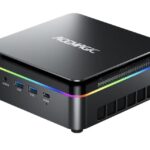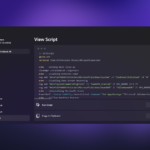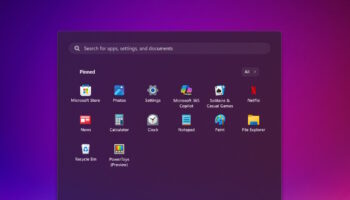ACEMAGIC F3A AI 370 MINI PC with AMD Ryzen AI 9 HX 370 now up for pre-order

If you have been waiting for a powerful, AI-driven mini PC, ACEMAGIC has some big news -- its F3A AI 370 MINI PC is now available for pre-order! This thing isn’t just another underpowered compact PC -- actually, it Is built for serious computing such as AI workloads and content creation.
At the core of the F3A is AMD’s brand-new Ryzen AI 9 HX 370 processor, based on Zen 5 and Zen 5c architecture. It has got 12 cores and 24 threads, with a turbo boost up to 5.1GHz, so multitasking and heavy workloads won’t slow it down. But what really makes this machine stand out is its AI-focused hardware. The third-gen Ryzen AI NPU, built on XDNA2 architecture, delivers up to 50 TOPS of AI power. When combined with the CPU and GPU, that number jumps to 80 TOPS, making this mini PC a beast for machine learning, AI inference, and other cutting-edge tasks.
Chimera Linux 20250214 update launches with new apk-tools, Kernel 6.13, and official PowerPC support

Just in time for Valentine’s Day, the much-anticipated 20250214 update for Chimera Linux is here! This version introduces an improved package manager, a more modern kernel, and broadened hardware compatibility.
A key highlight is the upgrade to apk-tools, now boasting variable expansion and a system-wide /usr file structure. This change simplifies mirror switching by eliminating the need for manual edits to repository configurations. Additionally, the update adopts a new v3-style index naming, ensuring backwards compatibility.
Best Windows apps this week

Six-hundred-thirty-four in a series. Welcome to this week's overview of the best apps, games and extensions released for Windows 10 and Windows 11 on the Microsoft Store and elsewhere in the past seven days.
Microsoft is pushing the new Outlook for Windows to Windows 10 systems automatically with this month's security updates for the operating system.
No more bloat -- Talon completely fixes Microsoft Windows 11 in just two clicks [Updated]

Windows 11 is the OS Microsoft thinks you should have -- not the one you actually want. It's good, but it's also packed with a ton of features that you don’t need and will never use.
There are a number of great tools you can use to strip out unwanted features from the OS, making it faster and more lightweight, but they tend to be too complex or require an advanced degree of technical know-how to use properly.
Get 'Microsoft 365 Word for Dummies, Second Edition' for FREE and save $18!

Word, Microsoft's powerful and popular word processor, is capable of extraordinary things. From template building to fancy formatting and even AI-powered editing and proofing, your copy of Word stands ready to help you supercharge your productivity and save you time and energy. You just need to learn how it's done. And, thanks to this easy-to-understand book, learning is the easy part!
This latest edition of Word For Dummies is packed with the essentials you need to turn any old copy of the famous word processor into a document-creating, table-formatting, graphics-editing super app. You'll even learn how to customize your version of Microsoft Word so it's absolutely perfect for you, at home and at work.
Enterprise tech buyers reveal their 2025 spending priorities

A new report from Crane Venture Partners looks at the priorities of senior executives who collectively influence $3–$4 billion in annual technology spending.
Respondents include leaders from major companies such as Microsoft, Bloomberg, Procter & Gamble, Kohl's, Arm, Comerica Bank, and NBC Universal. The report finds that while 100 percent of surveyed executives believe AI will shape enterprise operations, only 10 percent have so far fully integrated AI into their workflows.
The security threats organizations are most concerned about [Q&A]

The cybersecurity landscape is constantly evolving and organizations need to stay up to date if they're to adequately protect themselves.
At the end of last year, O'Reilly released its 2024 State of Security survey, which analyzes the threats that concern frontline practitioners most, the projects they're implementing to safeguard systems and infrastructure, the skills companies are hiring for, and more.
WhatsApp is rolling out chat themes to help make every chat unique

WhatsApp has started the rollout of a feature it says that users have been asking for -- chat themes. Using a combination of wallpapers and colored chat bubbles, every conversation can be given its own look.
This is a change that is about more than aesthetics, though. In providing the option to make every chat look different, WhatsApp is making it much easier to identify chats and avoid the tricky issue of sending a message to the wrong person or group.
Ransomware up fourfold as threats get more complex

Analysis of data logged by the Barracuda Managed XDR Security Operations Center shows ransomware threats have increased by four times over the last year.
In 2024, Barracuda Managed XDR logged 11 trillion IT events -- 350,000 per second. Just over a million were flagged as a potential risk and of these, 16,812 were identified as high-severity threats that required immediate defensive action. That’s a small percentage but highlights the need for powerful engines, analysis tools and human expertise to detect them.
Nearly half of organizations suffer third-party security incidents

New research finds that 47 percent of organizations have experienced a data breach or cyberattack over the past 12 months that involved a third-party accessing their network.
The study, carried out by the Ponemon Institute for Imprivata, also shows 64 percent of respondents believe these types of third-party data breaches will either increase or remain at alarmingly high levels over the next 12-24 months.
Fraud-as-a-Service allows cybercriminals to launch complex attacks with minimal skills

User-friendly fraud kits that enable amateurs to execute complex attacks against thousands of accounts in minutes are widely available on the dark web according to the latest 2024 Report on Global Identity Fraud from AU10TIX.
FaaS platforms provide all the tools, templates and automation that fraudsters need, including deepfake generators to create synthetic selfies and videos, botnets to automate mass-scale account creation and takeover, and phishing kits for email and web-based scams.
BlueAnt Pump X over-ear Bluetooth headphones feature fitness-ready design

Let’s be honest -- exercising sucks. While some people enjoy fitness, many people (such as myself) absolutely detest it. Whether you love or hate being active, however, it is undoubtedly an essential part of good health. In other words, a fully sedentary life is destined for tragedy.
If you want to make fitness more enjoyable, listening to music can do the trick. Put on a pair of headphones, crank your favorite tunes, and you just might find yourself more motivated.
The rise of adversarial AI threatens smaller organizations

Email remains a vital channel for business communications, but the availability of easy-to-use AI tools makes protecting the inbox a challenge as it's easier than ever for cybercriminals to launch sophisticated attacks.
A new report from Abnormal Security charts the rise of adversarial AI which has seen a 54 percent year-on-year rise in business email compromise attacks.
AVerMedia Live Gamer ULTRA S (GC553Pro) capture card debuts with 4K60 HDR and RGB24

AVerMedia has released its newest capture card, the Live Gamer ULTRA S, model GC553Pro. This device is primarily designed for gamers who livestream. AVerMedia says it offers recording at high frame rates, captures true-color RGB24, and provides 5.1-channel surround sound.
Streamers are often looking for equipment that can improve their broadcasts and engage their viewers more effectively. The Live Gamer ULTRA S aims to meet those demands with support for 4K60 HDR/VRR pass-through, capturing at high frame rates up to 4K60, 1440p144, 1080p240, and HDR up to 1440p30. The utilization of RGB24 format promises color accuracy, maintaining the visual integrity of the content.
What startups can learn from special forces strategy

On the battlefield and in the trenches of entrepreneurship, victory comes to those who dare to think unconventionally and act with precision. As a former Green Beret, I've seen firsthand how the principles of unconventional warfare can translate into the business arena. Both demand team building, strategic thinking, and adaptability in dynamic environments.
Let's break down the seven-phase model of unconventional warfare and see how it can guide a startup from its inception to market dominance.
© 1998-2025 BetaNews, Inc. All Rights Reserved. About Us - Privacy Policy - Cookie Policy - Sitemap.




